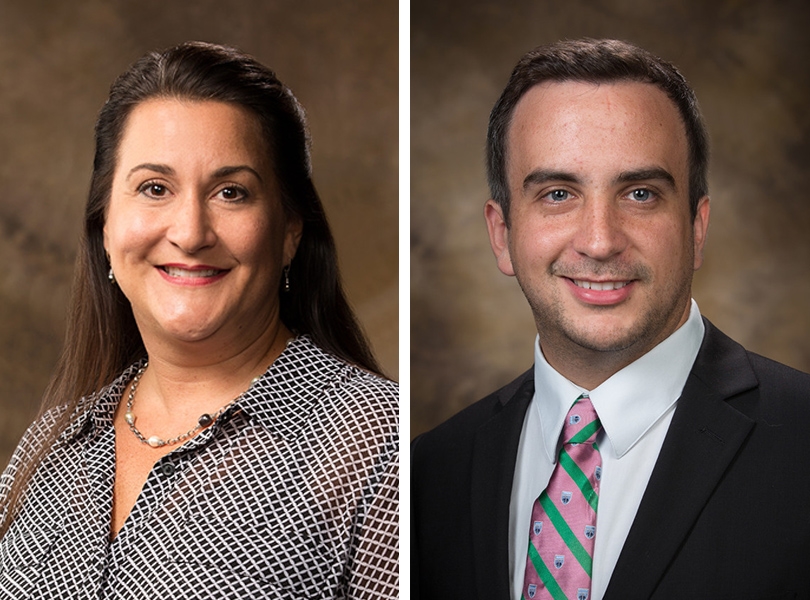University of Arkansas alumnae Angela Watson was recently part of a Johns Hopkins Institute for Education Policy team that evaluated the Providence, Rhode Island, schools system and found "unusually deep, systemic dysfunctions."
The Rhode Island Department of Education and other city officials invited the researchers to take a hard look at the school system and the team's subsequent 93-page report cited appalling conditions that revolved around deteriorating school buildings, personal safety concerns and broad learning deficits.
Ian Kingsbury, who just completed his doctorate at the U of A, was also part of the review panel. Kingsbury will continue his post-doctorate research at Johns Hopkins University starting next month.
"I was truly shocked by the conditions and dysfunction that we witnessed," he said. "Providence performs as poorly as some of the poorest, most troubled cities in the nation. Yet, on the surface Providence appears to be a reasonably nice city."
Watson, a Distinguished Doctoral Fellow at the U of A, completed a PhD in Education Policy in the Department of Education Reform in May. She is now a Senior Research Fellow in the School of Education at the Johns Hopkins Institute.
Watson and Kingsbury were among nearly two dozen researchers who toured multiple Rhode Island schools and interviewed hundreds of teachers, students, and other stakeholders about the condition of education in the system.
"What we saw was a complete breakdown of the education system," Watson said. "I thought we were going there to assess the rigor of the curriculum, but what I saw was that the most basic needs were going unmet."
She said kids were being asked to bring their own water from home because the water fountains in the school were polluted. They had rodent traps stuck to their shoes in class, she said.
Watson said the majority of the kids were impacted by trauma, but many schools had no or little services to meet those needs.
"One teacher told of a first grader who asked if the reason the police were at the school that day was because of the dead body at the bus stop he saw on his way to school that morning," she said. "Conditions were beyond anything I had seen before. Beyond anything I was prepared to see."
The team's findings have been the subject of stories in the Washington Post, Boston Globe and US News.
"I am proud to have been a part of this important work," Watson said. "As an education policy researcher, it can take years for your work to make any sort of tangible difference, and you may never see the impact or meet the people impacted. In this case, I hope the difference will be much more immediate.
"To have had a hand in making a difference for the kids and teachers that I met, in real time, feels very rewarding. I am hopeful that the Providence report will be enough of a catalyst to help that community move towards real change."
Kingsbury echoed the sentiment, saying, "I hope that our report illuminated the severity of the issues and compels meaningful reform."
Watson has a Bachelor of Science degree in education and a graduate certificate in STEM education from the U of A, as well as a Master of Arts in Teacher from Harding University. She's also a certified teacher, and has worked in the classroom teaching gifted and talented, American history, and physical science.
Watson is a co-researcher at the National Endowment for the Arts Research Lab, at the U of A, and was recently selected by the NEA to serve as a 2020 grants review panelist.
Her research centers on the intersection of education and social/cultural capital, and considers how restricted educational experiences may restrict social mobility, particularly for already marginalized populations.
Watson's research interests include the value of culturally enriching field trips, STEM education particularly regarding gender gaps, and school choice with a focus on homeschooling.
She describes her work at the Johns Hopkins Institute as a perfect fit.
"Our interests were the same and my work fit perfectly with the work they were doing or wanted to do in the future," she said.
Topics
Contacts
Ian Kingsbury, graduate assistant
Department of Education Reform
617-797-0961,
